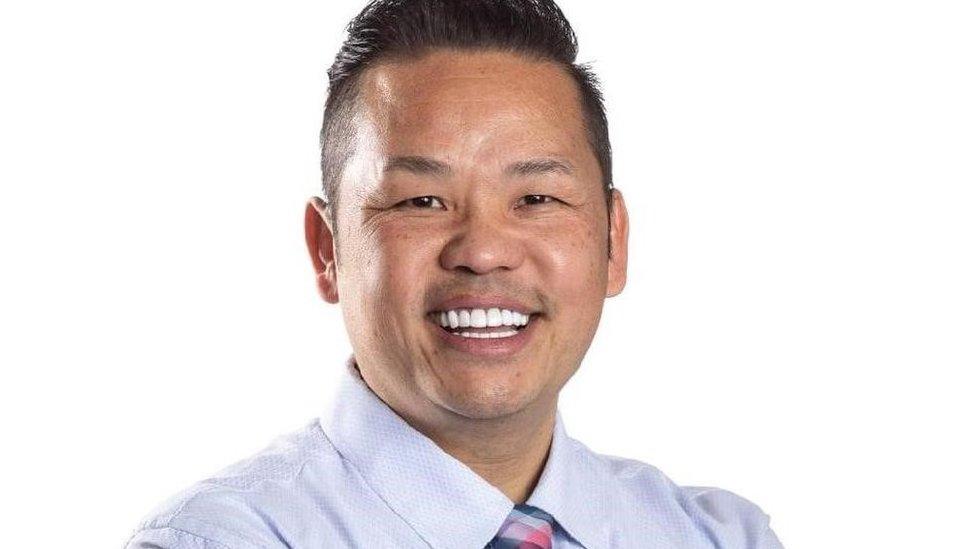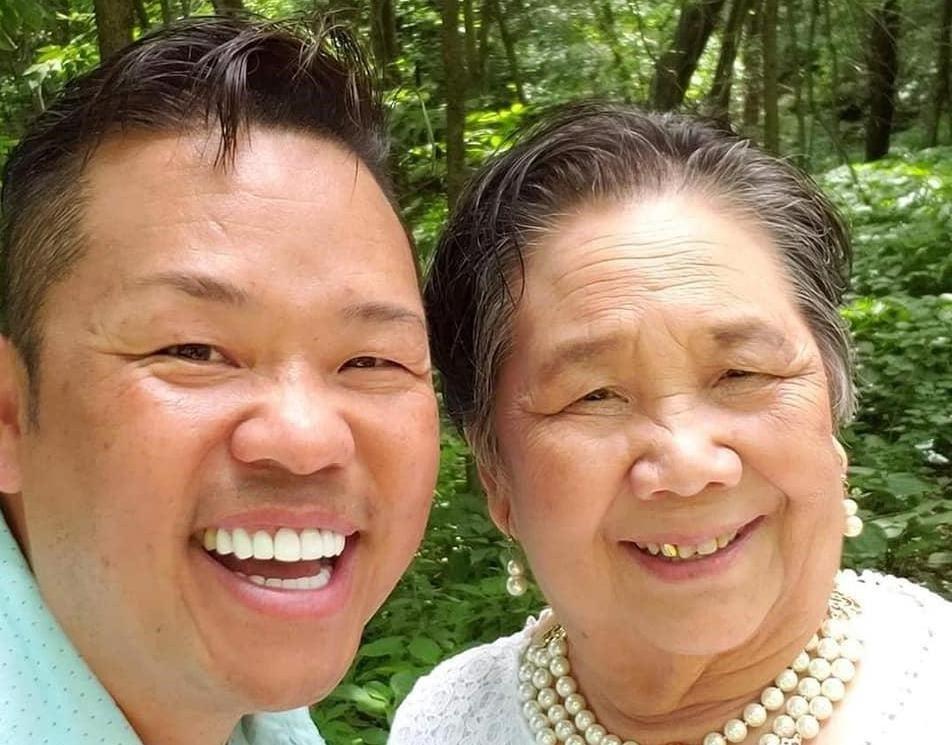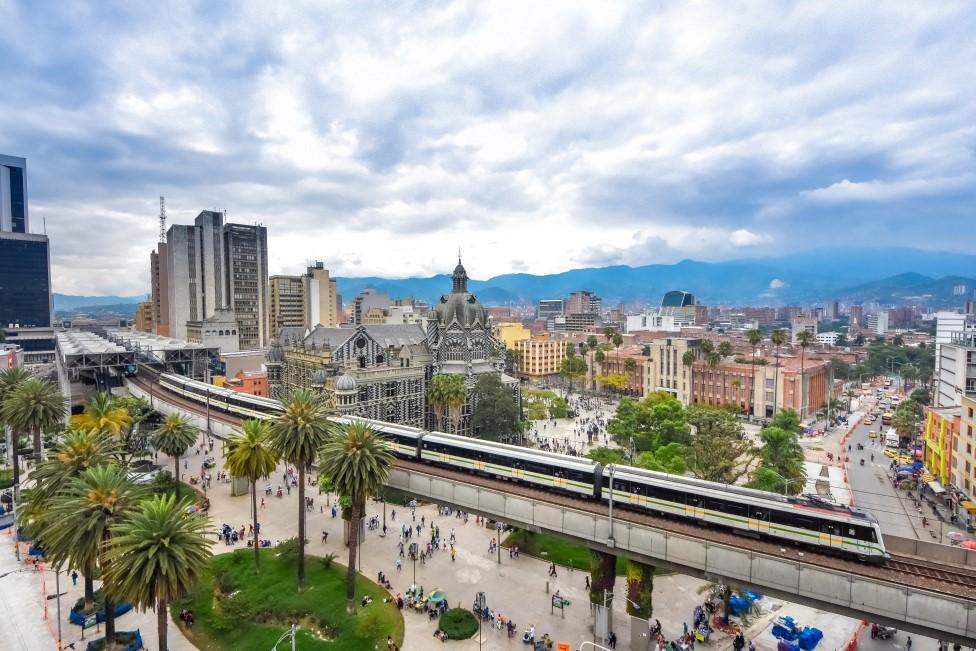'Drugged, robbed, killed': The city catching US tourists in dating trap
- Published

Tou Ger Xiong is one of several Americans whose deaths in Colombia have been linked to dating apps
A series of mysterious deaths involving American men in Colombia has been linked to dating apps. Relatives of those killed are now searching for answers, writes Austin Landis in Medellin.

Tou Ger Xiong loved coming back to Colombia.
"He talked about the high spirited people… just enjoying life," his brother, Eh Xiong, told BBC News. "He even picked up Spanish.
"It never, ever even crossed his mind that he would end up in a tragic incident this way."
Tou Ger, 50, was a Hmong-American community activist and comedian from Minnesota. Prior to his most recent trip to Medellin, he had been speaking to a woman online.
A few weeks into his two-month visit, in mid-December, he called his brother and asked him for $2,000 but didn't say what it was for or that anything was wrong. Eh said he would transfer the money. He never heard from his brother again.
The next day, police found Tou Ger's body in a remote, wooded area of the city. A friend in Medellin explained to Eh that his brother had been kidnapped and held at gunpoint for the $2,000 ransom.
"I did not want to believe it. I didn't know if it was really happening," Eh said. "My heart just sank."
Eh scrambled to contact the US embassy, who confirmed it was his brother's body. Colombian police this week arrested a woman and two men linked to his death, charging them with kidnapping and murder.
It's not clear whether he first met the woman through a dating app or through friends. But his death is one of eight in Medellin that prompted a warning from the US embassy, external about the risks of using dating apps. All eight victims were Americans who died in suspicious circumstances in November and December.
The US state department said it was aware of a gang in the city that previously used dating apps to isolate victims before abducting and killing them. But it's unclear if a gang was behind the US deaths.

Tou Ger Xiong, left, pictured with his mother
In the first 10 months of 2023, Medellin's tourism observatory had already recorded 32 violent killings of foreigners in the city - including at least 12 Americans and three from the United Kingdom - a 40% increase from the previous year.
Jeff Hewett was found "lying dead in a pool of blood" in his Medellin hotel room, his friends wrote online, describing him as "an easy-going, wry, kind spirit" and apparent victim of a "robbery gone bad".
Johny Jerome was killed on his 45th birthday. Phillip Mullins was drugged and died of an overdose, according to local media reports.
The embassy says several of these cases began with a dating app used to lure victims, part of a concerning increase in people who end up "drugged, robbed, and even killed by their Colombian dates". Neither Tinder nor Bumble, both popular in the city, would comment.
Carlos Calle, the former director of the city's tourism observatory, said it's common for criminals to drug tourists with scopolamine, an odourless substance known as "Devil's Breath". The US embassy also warned about the drug, which sedates victims for up to 24 hours.
"There's a negative profile of the tourist in the city that looks for a certain type of opportunities," said Calle in an interview. It's usually related to sex work, he said.
A spokesperson for the tourism observatory confirmed that the "majority" of victims last year were men, but added that many cases are still under investigation.
Prostitution is legal in Colombia and widespread in tourism hotspots like the cities of Medellin and Cartagena. But there's nothing to suggest the men killed were using prostitutes.
Alok Shah, 36, thinks scopolamine is what caused his vision to "go sideways" when he brought a woman back to his hotel room in late 2022. It was like his short-term memory was disappearing, he said.
The Texas resident had matched with a Colombian woman in her mid-20s on Tinder. They first went out for coffee, but Shah later decided to buy beers and bring her to his hotel.
He says he hadn't felt unsafe during his previous frequent visits to Medellin, or like prostitution was as prevalent when he first came in 2017. But he knew women were a draw to the city. "If you're a single guy, the women are very lovely here," a friend had told him.
Before his watch, jacket and $200 in cash disappeared that night, he remembers his date rubbing a powder on his neck. But he stayed conscious enough to realise something was wrong, threatening to call the police and chasing her away.
"I generally don't interact with the locals there now," he said. "There's just too much danger, there's too much risk."
The new US embassy notice recommends its citizens avoid taking dates to private places like hotels, plus inform friends, family or building staff about who they're with. And don't resist a robbery because that could be fatal.

Medellin receives more than a million tourists a year
Medellin's city police would not comment on the recent increase in violent deaths and referred BBC News to the mayor's office.
"We want more and more foreigners to come to the city," said Mayor Federico Gutierrez, but added that tourists coming purely for sex and drugs were not welcome. He said he's directed the police to crack down on what he says is a related underlying issue - the sex trafficking of minors.
Police have been directed to begin "special interventions" in the neighbourhoods where tourism is most prominent, a spokesperson for the mayor told BBC News, including the popular nightlife area called El Poblado.
More than 1.4 million foreigners visited the city as tourists in 2022, a new record over previous years, and over a quarter were American, according to statistics released by the mayor's office. The numbers for 2023 are expected to be even higher, partly because Medellin has become a top destination for remote workers.
Last week, Eh Xiong came to Medellin himself for the first time, to carry out a Hmong tradition by calling his brother's spirits back home.
"We're not mad at the people of Colombia," he said. "I truly believe that he would have forgiven the people who did that to him."
He added: "[Tou Ger had] this quick wit, fearlessness, that believes in the goodness of all people."
Austin Landis is a multimedia journalist based in Medellin, covering migration and stories from Colombia. She previously covered the White House in Washington for Spectrum News
Related topics
- Published11 January 2024
